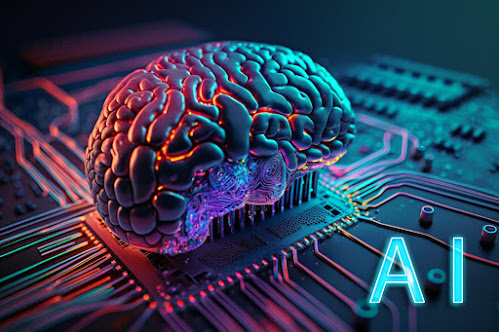 |
| Image credit |
Introduction
Artificial Intelligence (AI) is rapidly transforming the job market, creating new opportunities while also posing challenges to traditional employment models. As AI technologies continue to evolve, their influence on various industries is becoming more pronounced, leading to significant changes in how work is performed and the types of jobs available. In this blog post, we will explore the current trends in AI's impact on the job market, discuss potential future scenarios, and offer insights into how individuals and businesses can adapt to these changes.
The Current State of AI in the Job Market
AI's integration into the workforce is not a distant future concept; it is already happening across various sectors. From automating repetitive tasks to enhancing decision-making processes, AI is reshaping industries such as manufacturing, healthcare, finance, and customer service. According to a recent report by the World Economic Forum, AI and automation could displace around 85 million jobs by 2025. However, the same report also highlights the potential creation of 97 million new roles that are better suited to the digital age.
Automation of Routine Tasks
One of the most significant impacts of AI is the automation of routine and repetitive tasks. In industries like manufacturing, AI-driven robots are taking over assembly line jobs, reducing the need for human labor. These robots can work faster, more accurately, and without the need for breaks, which increases productivity but also raises concerns about job loss. In offices, AI-powered software can handle tasks such as data entry, scheduling, and basic customer inquiries. This allows employees to focus on more complex tasks that require creativity, critical thinking, and human judgment.
AI in Decision-Making
AI is not just about performing tasks; it also plays a crucial role in enhancing decision-making processes. In the finance sector, AI algorithms analyze vast amounts of data to provide insights that help in making investment decisions. These algorithms can identify patterns and trends that would be difficult for humans to spot, leading to more informed and timely decisions. In healthcare, AI assists in diagnosing diseases by analyzing medical images, patient records, and other data. This not only speeds up the diagnosis process but also improves accuracy, leading to better patient outcomes. These advancements are making professionals more efficient and effective in their roles, allowing them to focus on tasks that require human expertise.
Creation of New Job Roles
While AI is automating certain jobs, it is also creating new roles that did not exist a few years ago. For example, there is a growing demand for AI specialists, data scientists, and machine learning engineers. These professionals are needed to develop, implement, and maintain AI systems across various sectors. Additionally, new roles in AI ethics, AI safety, and AI-driven product development are emerging as crucial areas of expertise. These roles require a deep understanding of both technology and the societal implications of AI, highlighting the need for interdisciplinary knowledge.
The Future of Work: Opportunities and Challenges
As AI continues to advance, the job market will undergo further transformations. One of the biggest challenges posed by AI is job displacement. As machines become more capable, certain jobs may become obsolete. However, this also presents an opportunity for reskilling and upskilling. Governments, educational institutions, and businesses will need to collaborate to provide training programs that equip workers with the skills needed for AI-driven roles.
Hybrid Work Models
The rise of AI is likely to lead to hybrid work models, where humans and machines work together. In such environments, AI handles data processing and analysis, while humans focus on strategic thinking, creativity, and interpersonal communication. This synergy between AI and human capabilities could lead to increased productivity and innovation across various industries.
Conclusion
AI is undeniably reshaping the job market, offering both opportunities and challenges. While some jobs may be displaced by automation, new roles are emerging that require advanced skills and knowledge. To thrive in this evolving landscape, individuals must be proactive in reskilling and upskilling, and businesses must adapt to hybrid work models that leverage both AI and human strengths. By understanding the current trends and preparing for future changes, we can navigate the impact of AI on the job market and seize the opportunities it presents.